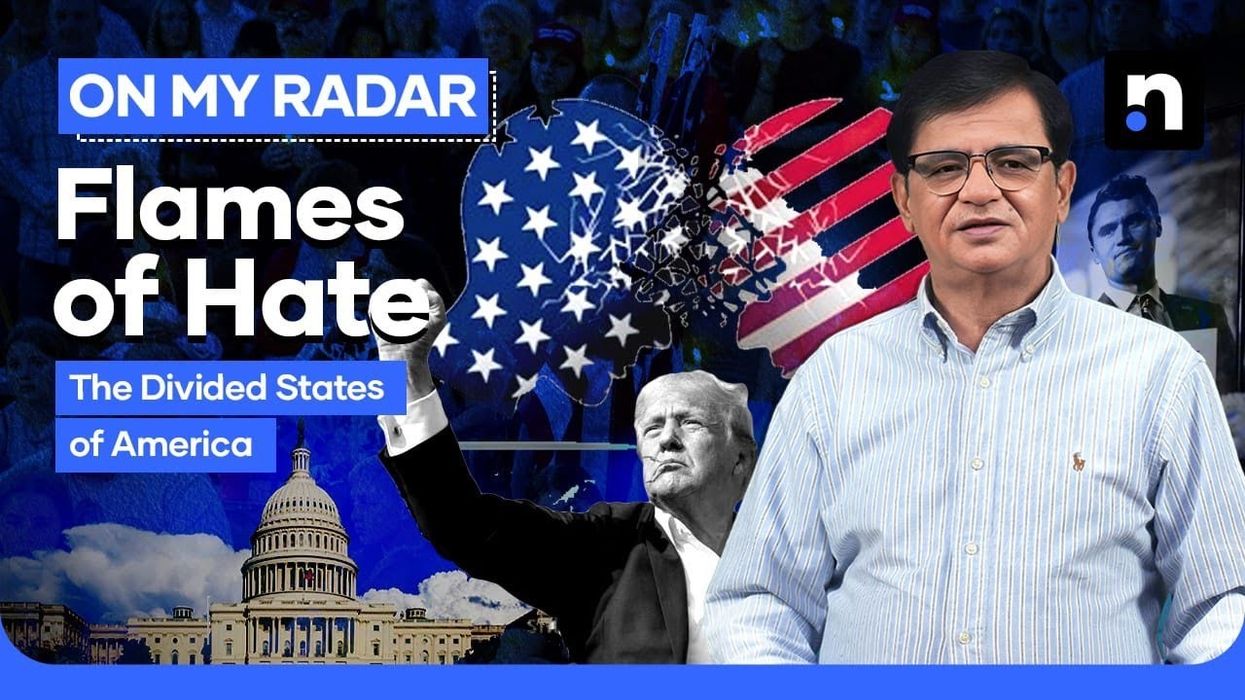Charlie Kirk’s assassination fuels US fears of civil strife
Kamran Khan says killing of Republican influencer reignites debate over political violence in the US
News Desk
The News Desk provides timely and factual coverage of national and international events, with an emphasis on accuracy and clarity.
Kamran Khan says America is burning in “flames of hatred, anger, and violence,” as the assassination of a close ally of President Donald Trump further deepens ideological and racial divides.
The United States, once considered a global symbol of liberty, equality, freedom, and democracy, now appears caught in a storm of polarization. According to Khan, the divisions are not only between left and right or white and nonwhite but also extend to immigrants, who increasingly face hostility.
A political assassination
The latest flashpoint came last week when Charlie Kirk, a 31-year-old conservative activist and founder of Turning Point USA, was shot dead at the University of Utah. Kirk, long known as a Republican influencer and a vocal proponent of white nationalism, was targeted by a 22-year-old student with a sniper rifle during a public event.
Republicans quickly labeled the attack a “political assassination,” blaming Democratic sympathizers for fueling hatred. President Trump himself appeared on television before the shooter was identified, accusing “radical leftists” of carrying out the attack and likening them to Nazi terrorists.
South Carolina Republican Rep. Nancy Mace openly blamed Democrats, further intensifying partisan hostility.
Freedom of speech and hate
Critics of Kirk pointed out that his speeches and social media posts often spread racially charged and anti-immigrant rhetoric. Yet, under the U.S. Constitution’s protection of free expression, Kirk used his platform to rally millions of young Americans behind Trump. That, Khan said, made him a hero for conservatives and a symbol of hate for his opponents.
The Republican Party has since taken a hard stance, warning that anyone celebrating Kirk’s death could face job loss or permanent social media bans. Reports suggest dozens of people have already been fired or suspended under such accusations.
A history of political violence
Khan reminded viewers that America’s divisions are not new. Racial and ideological conflicts shaped the 1960s and 1970s. But while earlier unrest often targeted government property, today’s violence increasingly targets people directly.
Reuters has documented that between the January 6, 2021, Capitol attack and the 2024 election, more than 300 politically motivated incidents occurred, killing at least 39 people—the deadliest wave of political violence since the 1970s.
Now, after Kirk’s killing, Republicans are raising slogans such as “Liberals have blood on their hands.” Social media is filled with calls for revenge, with some voices, including billionaire Elon Musk, branding Democrats the “party of killers.”
Expanding fears
Polarization extends beyond politics to deeply sensitive issues like abortion, LGBTQ rights, and transgender policies, Khan said. With widespread access to firearms, Americans effectively have a “license to kill,” he added, and harsh rhetoric from leaders only worsens the climate.
Trump himself has survived two assassination attempts in the past year, while Democratic lawmakers have also been targeted. In June 2025, a Minnesota Democratic legislator and her husband were killed at home, and in April, Pennsylvania Gov. Josh Shapiro’s residence was set on fire while his family was inside.
Polls by Reuters and Ipsos earlier this year showed 65 percent of Americans feared attacks from political opponents. Nearly 20 percent of voters from both parties said violence might be acceptable to build a “better society.”
The Brookings Institution found that around 28 percent of both Republicans and Democrats now see political violence as “acceptable.”
Trump’s powers under scrutiny
Khan warned that Trump could use Kirk’s killing as a pretext for a crackdown on opponents. The president has already expanded executive powers, and analysts fear he could invoke emergency measures to deploy troops, expel immigrants, or suppress opposition.
Harvard professor Steven Levitsky wrote in Foreign Policy that Kirk’s death could become “fuel for authoritarian measures.” Princeton historian Julian Zelizer echoed the concern, telling Reuters that Trump’s aggressive instincts could push the U.S. into greater danger.
Deputy Secretary of State Christopher Landau has already warned that immigrants who mocked or justified Kirk’s killing would face deportation.
A nation at a crossroads
According to the University of Maryland, nearly 150 politically motivated attacks occurred in the first half of 2025—almost double the same period in 2024. Republican House Speaker Mike Johnson told CNN that lawmakers were now demanding increased security after Kirk’s death.
Khan said economic uncertainty, demographic shifts, and racial tensions are fueling resentment. Lone attackers, responsible for about 65 percent of recent incidents, show how deeply these divides run.
“America is not yet in a state of civil war,” Khan said, “but its society is spewing poison that breeds rebellion and hate.”
The question, he concluded, is whether the United States—the so-called “land of opportunity”—can protect itself from this fire of hatred, or whether racial prejudice and ideological divisions will drag it toward civil war.











Comments
See what people are discussing